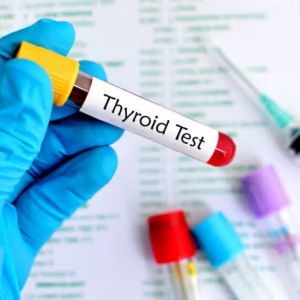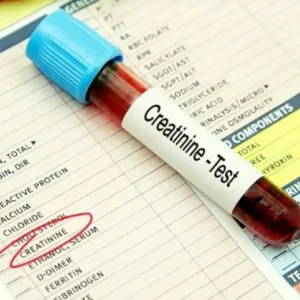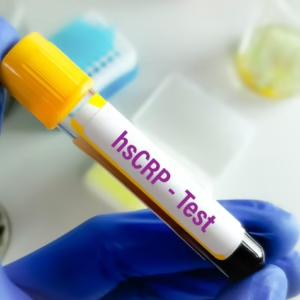Description
HsCRP Test:
The High-sensitivity C-reactive protein (HsCRP) test measures low levels of C-reactive protein, a marker of inflammation in the body. It’s particularly useful in assessing heart disease risk and chronic inflammation.
Why It’s Done
| Health Concern | Purpose of HsCRP Test |
|---|---|
| Risk of Heart Disease | Predict future risk of heart attack or stroke |
| Chronic Low-Grade Inflammation | Detect ongoing systemic inflammation |
| Autoimmune Conditions | Help monitor diseases like RA or Lupus |
| Diabetes or Obesity | Evaluate related inflammation and cardiometabolic risk |
| Recovery After Infection or Surgery | Track inflammation and healing |
Result Interpretation
| HsCRP Level | Cardiovascular Risk |
|---|---|
| < 1.0 mg/L | Low risk |
| 1.0 – 3.0 mg/L | Average risk |
| > 3.0 mg/L | High risk of heart disease |
| > 10 mg/L | Possible acute inflammation or infection (retest recommended) |
Symptoms That May Need HsCRP Test
-
Unexplained fatigue
-
Low-grade fever
-
Chest pain or pressure
-
Family history of heart disease
-
Recent infection or inflammation
Why Choose the HsCRP Test?
-
Detects hidden inflammation that may not show symptoms
-
Helps predict heart-related events before they occur
-
Ideal for high-risk individuals (smokers, diabetics, hypertensives)
-
Assists in treatment monitoring for autoimmune/inflammatory diseases
Good to Know
-
No special preparation needed
-
Not specific to any one condition—follow-up testing may be needed
-
Often recommended along with lipid profile or cardiac risk panel
📝 Note:
Reference ranges can slightly vary based on lab standards, age, and altitude.
Always interpret values in consultation with a qualified physician.









 Creatinine Test
Creatinine Test  FSH Test
FSH Test  Widal Test
Widal Test  HsCRP Test
HsCRP Test  CBC (Complete Blood Count)
CBC (Complete Blood Count)  Urine Routine Test
Urine Routine Test
Reviews
There are no reviews yet.